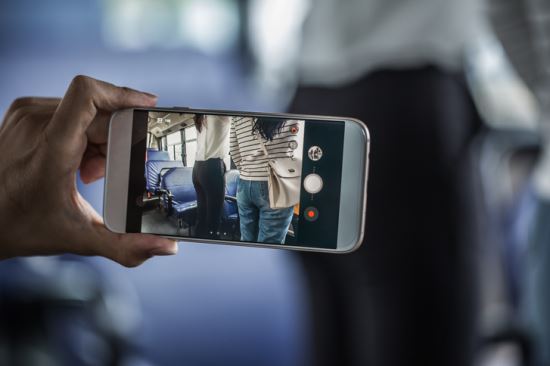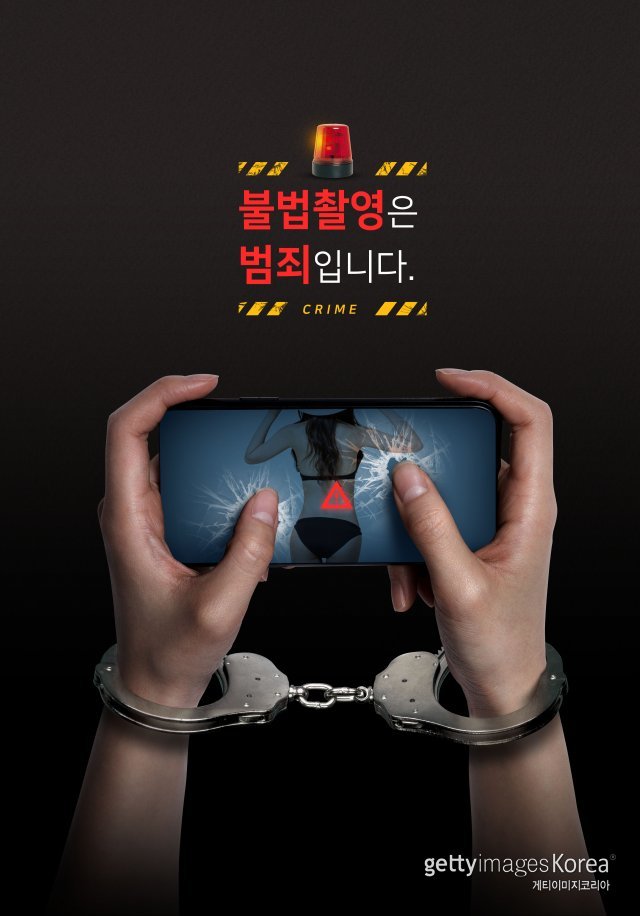Although it has been a long time since the problem of illegal filming using spy cams was first raised in Korea, it continues today. Police arrested a man on March 29 for illegally filming women in a restroom at Seoul National University (SNU). The suspect was an employee of a security company at SNU. Gwanak Police Station said on April 1 that the suspect is being charged with violating the Special Act on the Punishment of Crimes of Sexual Violence. The victim, who noticed a strange sign in the restroom, immediately reported it to the police. After reviewing the closed-circuit TV (CCTV) they were able to identify and catch the suspect, who later told the officers he did it out of curiosity.
The Dankook University (DKU) Student Council announced on ‘Every Time’, an online community for students, that it had conducted a surprise inspection of campus facilities looking for planted spy cams. Fortunately, both the male and female toilets were cleared. However, the on-going problem has unsettled many people, especially women, who account for most of the reported victims in crimes involving illegal filming.
 |
| ▲ The example of illegal filming (Photo from Kookminilbo) |
The problem is no longer considered isolated events, as reports of spy cam sex crimes have surged in recent years. More than half of those charged received only a penalty of a fine. On February 10, 2020, the Ministry of Justice (Criminal Prevention and Policy Bureau) published the ‘2020 Sex Crime White Paper,’ which analyzed the characteristics of 74,956 sex offenders. The report proved crimes involving illegal filming have surged. The number of "camera and other shooting" crimes increased 5.8 times from only 412 in 2013 to 2,388 in 2018. Recently, the Seoul Southern District Court sentenced a man to five years in prison for rape and other charges and ordered him to attend a 40-hour sexual violence treatment program. He was also given a three-year restriction on employment at children and youth-related institutions. According to the prosecution and the court, he was put on trial in June last year on charges of calling in the victim, raping her several times, and threatening her with a weapon. He used an illegal film of her that was taken when they were dating as a means of blackmail. “The defendant committed crimes such as rape, assault, and intimidation against the victim, who was his lover for a long time. And the victim is demanding severe punishment, complaining of extreme mental and physical pain," the court said. However, the prosecution did not accept the order to disclose personal information and the need to attach electronic tracking devices, citing that he had no prior history of sex crimes.
The case was made public through a post on the Blue House petition board titled ‘We urge strong punishment for the attempted murder of date violence in Gangseo-gu.’ "The victim was repeatedly assaulted, raped, threatened, and illegally filmed by her ex-boyfriend, and was almost killed. We urge strong punishment for the perpetrator," the petitioner said. More than 200,000 people have signed the petition and in response, the Blue House announced stricter responses to dating violence. There is a lot of criticism regarding Korea’s system of punishment for illegal filming. People point to the low rate of police investigation as proof the system is not working to protect victims. According to Korea’s Cyber Sexual Violence Response Center, a criminal only has to say they lost their camera or device for police to close the investigation, even if there is video evidence presented by a victim. Perpetrators can destroy evidence or submit different devices to the police to avoid being charged.
Far worse is our history of poor adjudication by the judiciary when a case does go to trial. In 2019, only 12.2 percent of suspects in cases of illegal filming were found guilty and imprisoned. The rest received probation or a monetary penalty. Even if sentenced to prison, they are usually in jail for approximately one year. It is clear that Korea’s legal system is not strong enough to deal with the matter. The problem is compounded by a judiciary that fails to acknowledge the seriousness of the crime. Culprits have often seen their sentences commuted for many reasons, but predominately because it was their first offence. However recidivism in the case of illegal filming is high with 75 percent finding their way back before the courts for a second conviction.
In 2020, new standards for the punishment of those convicted of illegal filming were announced. However, some experts expressed concerns about their effectiveness as they do nothing to alter the proven soft opinions of judges in these matters. Under the changes to the Special Act on the Punishment of Sexual Violence Crimes, anyone who owns, purchases, stores or watches illegal films can be sentenced up to 3 years and face a fine of up to 30 million won. However, a suspect only has to claim they were unaware the video was illegal when they watched it to be cleared of any wrongdoing. On a positive note, to prevent the recurrence of sex crimes, new security measures are being imposed on sex offenders including the registration of personal information, orders to disclose personal information, compulsory completion of sexual violence education and other programs, and orders to attach electronic anklets.
 |
| ▲ A poster promoting the eradication of illegal filming (Photo from Donga Ilbo) |
Despite these positive changes, many believe that the level of punishment in Korea is low compared to other developed countries. The differences in punishment were highlighted in the W2V case. Son Jung-woo, the operator of ‘Welcome to Video’, the world's largest sexual exploitation site of children, was tried for repatriation to the United States in June 2020 for crimes of child pornography against American children. Many citizens insisted on his repatriation to the United States, as they believed punishment for the crimes he committed would be more severe overseas. He only served 18 months in a Korean prison for his role in hosting a site that contained over 25,000 videos of assault, rape, and mutilation of infants and children aged 6 months to 5 years. Some of the children featured in the videos were never found. The petition to extradite him was denied after pleas from his father found welcome ears in domestic courts. Investigation agencies in 32 countries, including the US Department of Homeland Security and the UK National Crime Agency, conducted an international cooperative investigation that led to the eventual shutdown of W2V in 2018. Subscribers to the site were charged in their home countries. A member who downloaded a video in the United States was sentenced to five years in prison, and a person who directly produced videos of sexual exploitation in the United Kingdom is serving 22 years. This is a stark contrast to ringleader Son's sentence that was handed down by Korean courts.
Experts examining more than 200 sex crime judgments in Korea found many disturbing rulings. Some judges openly expressed their biases during trials stating that women drinking alcohol and having sex are ‘morally problematic’. According to the producers of the MBC show ‘PD Note’, one of the fundamental problems lies in the low gender sensitivity of the judiciary. Many women are still facing the risk that at any time, they can photographed or videotaped by an unknown criminal and with a weak system of justice and punishment, the burden is on the victim to be careful and look after themselves.
We should live in a society where the perpetrator is sternly punished, not where the victim lives in fear. The government and legislature must come up with a solution for this problem as soon as possible. In addition, the judiciary must be made to understand this kind of crime is a serious matter and start issuing appropriate judgments that prevent reoccurrence of the offense and leave the victims feeling safe. We need to start protecting the wounded instead of the assailants.
류시은, 정예지, 김주예 dankookherald@gmail.com

![[Campus Magnifier] Let's Surf the Library!](/news/photo/202404/12496_1765_4143.jpg) [Campus Magnifier] Let's Surf the Library!
[Campus Magnifier] Let's Surf the Library!
![[Campus Magnifier] Let's Surf the Library!](/news/thumbnail/202404/12496_1765_4143_v150.jpg)





